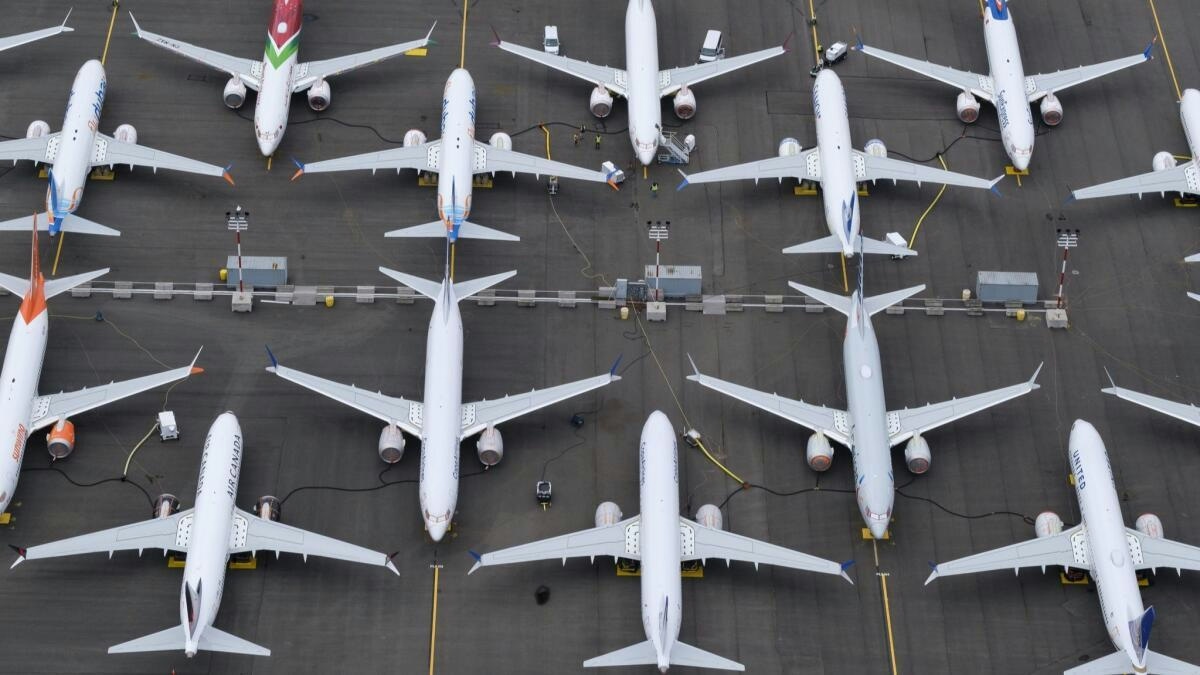AeroGenie — Ihr intelligenter Copilot.
Trends
Categories
Low-Cost Airline Adds 50 Boeing 737 MAX Aircraft to All-Airbus Fleet

Vueling to Introduce Boeing 737 MAX Jets, Ending Exclusive Airbus Fleet
Vueling, the Spanish low-cost carrier owned by International Airlines Group (IAG), is set to conclude its long-standing commitment to an all-Airbus fleet with the introduction of Boeing 737 MAX aircraft. As revealed in IAG’s latest financial report, the group has reassigned its existing order for 50 Boeing 737 MAX jets—originally placed in 2022—to Vueling, with deliveries scheduled to commence in late 2026.
Transition to a Mixed Fleet
Since its founding in 2004, Vueling has operated exclusively with Airbus A320 family aircraft. Its current fleet comprises 141 planes, including 91 Airbus A320-200s, 22 A320neos, 18 A321-200s, six A319s, and four A321neos, with an average aircraft age of 10.1 years. The airline is also awaiting the delivery of three additional A321neos and two A320-200s. The forthcoming addition of Boeing 737 MAX aircraft marks a significant strategic shift, as Vueling will operate a mixed fleet for the first time.
The Boeing order includes 25 737 MAX 8200s, optimized for high-density seating of up to 210 passengers, and 25 737 MAX 10s, which can accommodate up to 230 passengers. The MAX 10, still pending certification, offers a range of 3,300 nautical miles, enabling coverage of nearly all single-aisle routes. This expansion is expected to enhance Vueling’s network growth and open new destinations, while the fuel-efficient 737 MAX models will modernize the airline’s operations by replacing older A320-200 aircraft.
Strategic Implications and Challenges
The increased seating capacity of the new jets will allow Vueling to carry more passengers per flight, potentially boosting revenue per departure and providing greater flexibility to adjust capacity according to seasonal demand or deploy aircraft on high-yield routes. This move is designed to strengthen Vueling’s competitive position against rivals such as Ryanair and easyJet.
However, integrating the Boeing 737 MAX into an operation historically centered on Airbus aircraft presents considerable challenges. The airline will need to address complexities related to pilot training, maintenance, and logistical coordination inherent in managing a mixed fleet. Additionally, expanding into new markets while maintaining competitive pricing will be critical as Vueling aims to establish itself as the world’s first low-cost network carrier.
Market responses are anticipated, with competitors likely to adjust their route networks, pricing strategies, or fleet compositions in reaction to Vueling’s enhanced capabilities. This strategic shift occurs amid a broader industry environment characterized by fluctuating demand, regulatory scrutiny, and Boeing’s recent increase in production and orders.
Expanding Presence in Europe
In recent months, Vueling has increased capacity on key routes between the United Kingdom and Spain, adding flights to Alicante, Barcelona, and Seville, while launching new services to Bilbao and Santiago de Compostela. The introduction of the Boeing 737 MAX fleet is expected to further consolidate the airline’s position within the highly competitive European low-cost market.

Emirates Unveils Cabin Design for New Boeing 777X

Eighteen Years On, the Airbus A380 Remains Central to a $34 Billion Airline

How a boom in luxury airline seats is slowing down jet deliveries

Navitaire Outage Attributed to Planned Maintenance

DigiYatra Debuts Outside Aviation at India AI Impact Summit

Vietnam Orders Strengthen Boeing’s Commercial Outlook

Airbus Signals Uncertainty Over Future A400M Orders

JobsOhio Awards $2 Million Grant to Hartzell Propeller for Innovation Center

Collins Aerospace Tests Sidekick Autonomy Software on YFQ-42A for U.S. Air Force CCA Program

How the Airbus A350-1000 Compares to the Boeing 777
